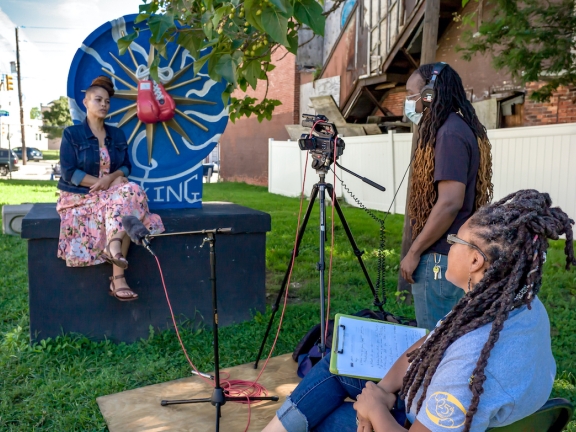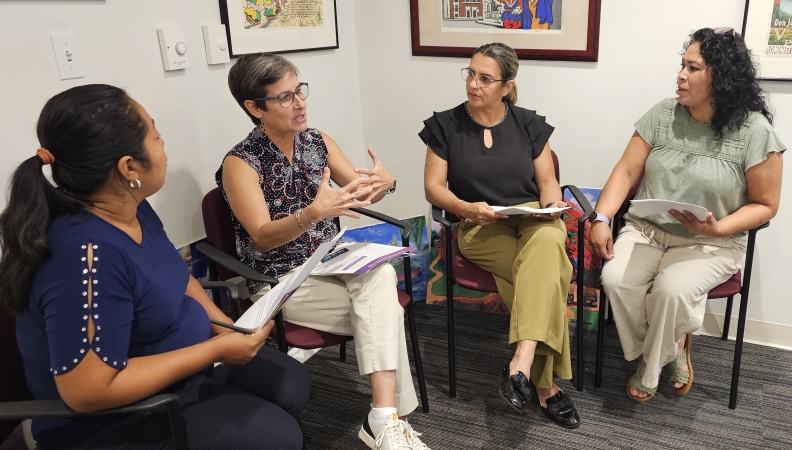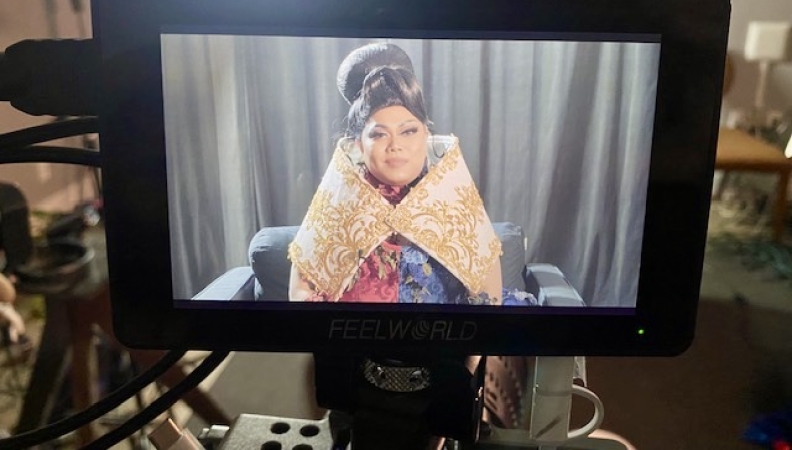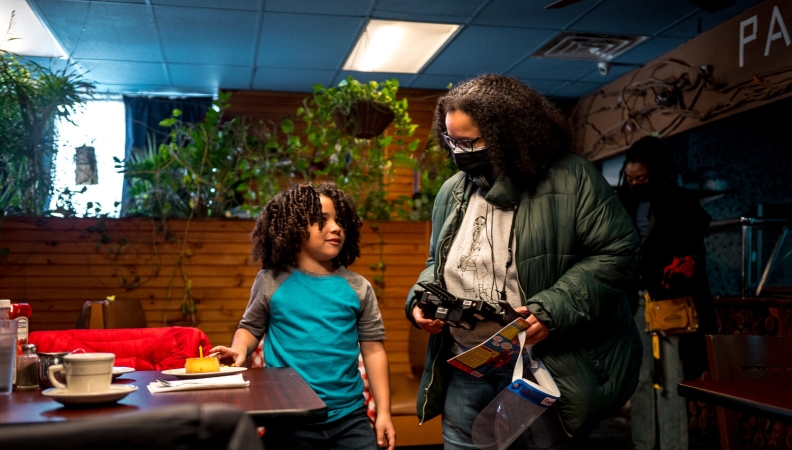How this Media Organization Uses Storytelling to Cross Cultures and Histories

Scribe Video Center (Scribe) has spent about two decades providing training in video and audio production to media-makers in the Philadelphia area at all stages of their development. IPMF awarded Scribe a three-year $1,110,000 grant in 2019 to support organizational capacity building that will position Scribe to build its staff, broaden its programming portfolio, and enlarge its re-granting program for area media makers.
The following is a conversation with Scribe’s Executive Director, Louis Massiah.
IPMF: Tell me about how you go about doing your work to build the power of communities to own, tell, and disseminate their own stories.
Louis Massiah: Place and people are important. The fact that Scribe staff are reflective of the diversity in Philadelphia has an impact on how we work. People of color are the majority of who we work with, particularly African Americans, but that’s a natural constituency because of the welcome that we put out there. We do outreach based on looking at the needs of communities, but the selection is done by people who have previously been involved in our program. It’s a kind of peer review process. The constituency has a role in the functioning of our programming. We also have a program where we screen films in different neighborhoods throughout Philadelphia, and that is a way of deepening relationships that we have developed with community groups. We are able to show their work in community settings and make it clear that time-based visual media and documentary are community artforms. They can have a place-based presentation, and that can be a place for sharing.
Can you talk about some of the practices you use to cultivate relationships with the communities you work with and how you came to use them?
Louis: I look at media as this ongoing mode of communication that allows people within and across communities to talk to each other. It's a way that we relate to each other. A lot of the methodologies have developed over time and are quite intentional. How do you create a media production practice that is democratic, that is nonhierarchical, that is participatory, that allows consensus decision making, and where the subject has authorship? Other methodologies are responsive, and necessity is very much the mother of invention. The pandemic helped us to learn how to use new technologies in terms of how we create work, how we share work, and how we communicate — which will clearly be incorporated in the future.
How do you see Scribe as part of the local ecosystem of community-based media-makers in the Philadelphia region?
Louis: We collaborate a lot with other organizations—from the Big Picture Alliance to Scribe works being shown on PhillyCAM. We also have a pretty robust regranting program where we are encouraging new works, bringing them to the next level, and supporting them to be finished. This is bringing in new voices that may not have had opportunity to finish or to even start their projects. We are involved in cultural work as a way of connecting and making this society healthy. It's not making a work of art in the abstract. The work we do is connected to something bigger, so if there are people who are doing different aspects of this, then you share skills and build off what each other is doing. I'm trying to make communities self-determining and democratic. I’m trying to address the deep imperfections and disempowering nature of the society we live in. I’m trying to create space for people to live and be fully human. Hopefully, that's what all of us are trying to do.
What are ways that culture work and media are well-suited to contribute to that liberating vision?
Louis: Storytelling crosses cultures and crosses history; it is part of the human definition. There is a valorizing of history, and it is important to not just take the assumptions of history that are used by corporate media. A lot of the work we do is rooted in history: the Documentary History Project for Youth, the Precious Places Community History Project, The Great Migration. It's looking at history as being a major site of contention and having that historical foundation allows folks to explore issues of immediate concern and move into the future.
I appreciate that you mentioned history because Scribe is an enduring institution that has a lot of its own history. What have you’ve learned over the last thirty years that guide the work you do today?
Louis: The importance of honoring and listening to everyone. Allowing people the space to use media as a tool of historiography, and sharing one's personal or communal history with the broader public, can be powerful. Another is learning the importance of archiving and making sure what is created today can be useful for folks in the future. We have the understanding that, although in the moment it may not seem like something is valuable, if someone has awareness of it in the future, it can allow us to do a better job six months from now, five years from now, or even thirty years from now.



